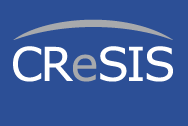Graduate Curriculum Overview
CReSIS has developed a graduate curriculum in polar remote sensing by building on the expertise and courses designed by faculty at several partner institutions. Graduate students at partner institutions will examine a broad range of scientific and technical topics related to climate change research. Distance-learning technology is used to make all courses available to those at partner institutions. The courses included in the curriculum are offered annually or semiannually and are listed in the table below.
Institution |
Course | Responsible Individual |
|---|---|---|
| KU Geography | Glaciers and Landscape | van der Veen |
| KU Geography | Advanced Glacier Dynamics | van der Veen |
| KU EECS | Principles of Microwave Remote Sensing | Allen |
| KU EECS, OSU | INSAR and Applications | Allen, Jezek | KU Education | Being an Effective College Instructor in the STEM Fields | Bernstein |
| PSU | Ice and Climate | Alley, Anandakrishnan |
| PSU | Seismic Imaging Of, And Beneath, Glaciers | Alley, Anandakrishnan |
Graduate Research Projects
Radar Development
Several graduate research projects involve the development of a state-of-art suite of remote sensors, including ultra-wideband FM radar, polarimetic radar, and SAR/depth sounder radar that is flown on aerial platforms such as the Uninhabited Aircraft System (UAS) or on the conventional Twin Otter aircraft.
Platform Development
A large team of aerospace engineering students are working on the development of the Uninhabited Aircraft System (UAS) which will fly the sensor suite over inhospitable areas of the polar ice sheets to collect targeted science data. Teams are also working on designing new and more efficient platforms for obtaining seismic and in situ data. Two such projects are the hybrid-streamer and the radar sled both pulled by Marvin, the rover.
Modeling
One of the newer projects at CReSIS focuses on the development of the next generation of ice-sheet models for use in future IPCC sea-level forecasts. It is the goal of this project to develop a diagnostic understanding of the processes responsible for rapid ice-sheet changes and to incorporate this understanding into prognostic numerical models.
Education
The education graduate students are responsible for the development and evaluation of the CReSIS education offerings at the K-12 level, including professional development opportunities for teachers.


